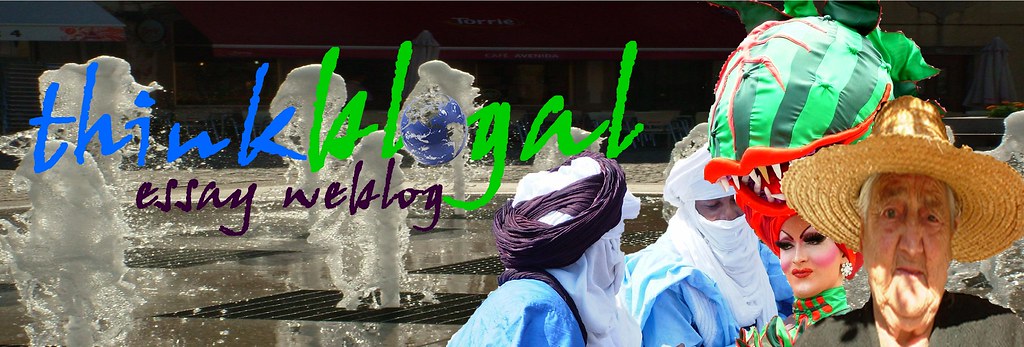Hegemony in International Relations has always been perceived as a material phenomenon. Superpowers have such qualifications for they possess the material resources that enable them to gain control over other states’ actions and purposes. Recently, theorisation on hegemony developed in order to gain a more relational nature. Actors in International Relations play a hegemonic role if they are able to determine how the global system thinks and acts. In two words: normative power.
Following Deutsch’s cybernetic approach to social science, political systems are fed through inputs converted into outputs by a decision-making process. Both inputs and outputs are never free from an ideological perspective. They always underpin a normative framework for reality: a wish about how political communities should be regulated.
Neo-realist perspectives on International Relations, specifically on foreign policy analyses, traditionally focus on the formality of decision-making processes, thus neglecting the content of political decisions grounding them to mere problem solving mechanisms.
New theories have just started to analyse how several non-state actors are capable of influencing decision-making processes in foreign policy. The aristocratic and elitist nature of traditional diplomacy is slowly fading away. Maquiavel, Metternich and Bismarck would be surprised to see how their “Princes” and “Kings” could hardly now invoke La Raison d’ État in order to take decisions outside public scrutiny. Decision-making process in foreign policy is becoming increasingly more open and democratic.
The democratisation of foreign policy decision-making processes is vital in an international context where neoliberalism is becoming the solution for all world problems. The economic hegemon is promoting Francis Fukuyama’s vision about the End of History. Globalisation seems to be homogenising the economic mechanisms to regulate societies. Even the specificities of the European welfare state are being questioned by a growing market-led European Union. In the wake of such neo-liberal hegemony, big powers try to promote polyarchyc models of governance in recent African, Asian and Latin-American democracies. Robert Dahl describes polyarchies as low intensity democracies where popular participation is confined to regular voting procedures. Those low intensity democracies are quite suitable for neo-liberalism, for individuals become accustomed to be simple commodities consumers and not full citizens with governance responsibilities.
Western societies, who consider democracy as the ‘normal’ regime, are not immune to the polyarchyc modes of authority. The depolitisation of citizen’s participation in governance frees state’s elites from accountability. Among public policies, this lack of accountability is more visible in the foreign policy domain. Two questions arise: who is resisting? And who is doing the thinking?
Who is resisting?
Resistance to the neo-liberal order is clearly being led by worldwide social movements who try to alert societies to the dangers of what Tocqueville called “the worst kind of tyranny”: the tyranny of the mind. This means the government capacity, even in a democratic framework, to control the political will of its citizens. Again two words: normative power.
Nationalist movements are also performing resistance. Nationalism has been perceived by academics as a dead ideology. However, there are those who claim that nationalism belongs to the future and not to the past, that nationalism is not the product of pre-modernity but of a postmodern international order. This leads us to question the nature of political communities. If we picture the evolution of political communities as a cycle we can identify three stages: the imperial system, the feudal state and the nation-state. And after the nation-state (in fact, I must say that a small number of states are true nation-states) what will come? Will it be a neo-medieval system or a transitional period after which we will have a back to the nation movement? Post-modernity should have brought a more cosmopolitan way of governing the international society. However, cosmopolitanism is being resisted by a perceived need to an origin’s return. Whether those origins are local or regional or national, the ties that connect people to their territory are already under discussion. The question is: can we ground citizenship in a non-territorial basis?
Who is doing the thinking?
The neo-liberal order is being sustained mostly by private actors that perform advisory roles near governmental elites. Among those private actors I would like to call attention to what Peter Haas has called epistemic communities. Haas defines such communities as “(…) a professional group that believes in the same cause and effects relationships, truth tests to assess them, and shares common values. As well as sharing an acceptance of a common body of facts, its members share a common interpretive framework, or ‘consensual knowledge’, from which they convert such facts, or observations to policy relevant conclusions. They identify problems in the same manner and process information similarly. They also share a common vocabulary, common political objectives to which such policies should be addressed, and a common network in which findings are exchanged and shared concerns are formulated” (Haas, 1990).
This definition underpins the normative framework of epistemic communities. They are a group of people, scattered by several areas that produce technical knowledge and that are forming among themselves networks of communication. In some Anglo-Saxon literature we find epistemic communities under the label of ‘think-tanks’. Slowly, such groups are setting the bases for a new international order. They are highly politicised groups with a tendency to disguise their normative functions under the clout of technical knowledge. Epistemic communities deserve a more profound study. I will undertake such analysis in my next contribution to Thinkblogal.
I will try to do the thinking.













<< Home